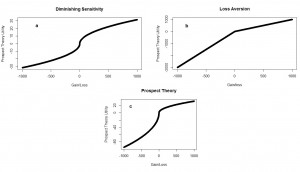Any good standings page has a wealth of objective team information. Season wins/losses. Points scored for/against. Record in the last 10 games. Games behind first place. Etc.
What purpose do “Power Rankings” serve on top of objective standings? Some experts watched the sport and decided that a team was perhaps outperforming its record? They had some witty comment to make for a few teams and decided to go ahead and try to right something down for all the teams?
Experts aren’t very accurate in their predictions. Power rankings are no exception to this rule. I choose not to read power rankings any more. The very occasional witty comment is overwhelmed by the mass of obvious/rehashed observations that make up the power rankings commentary. This is part of a general trend in me listening to ESPN less and less and looking at actual performance data more and more.


